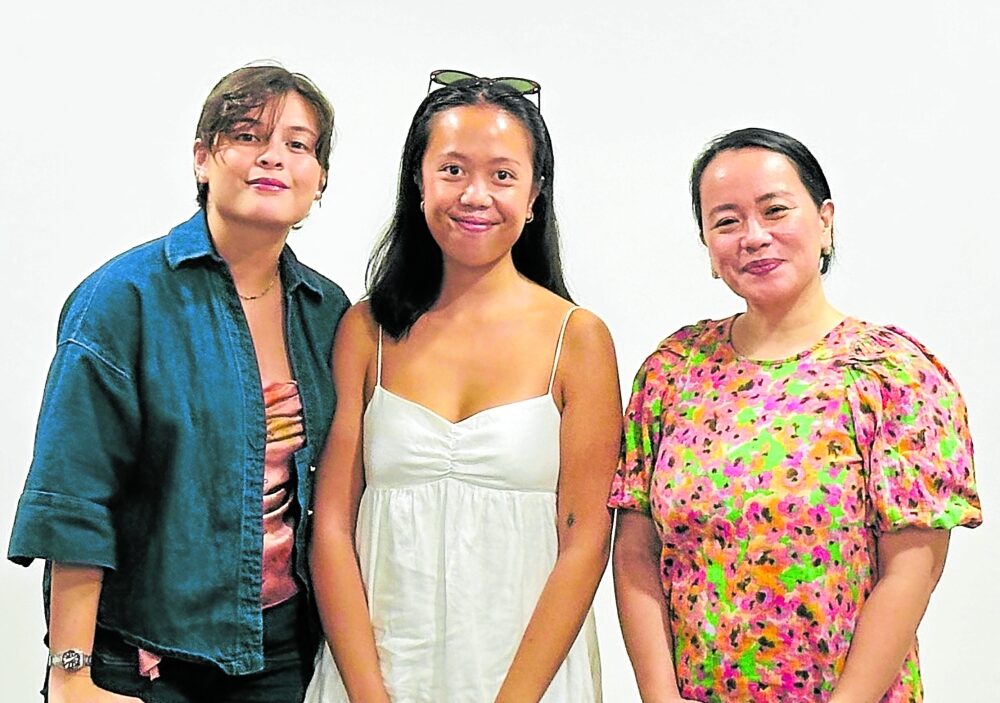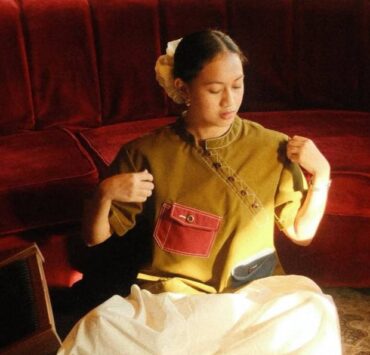Why aspiring writers need to be ‘chismosa’

At this year’s May Writefest, a creative writing workshop for kids ages 8 to 18 held at Fully Booked BGC, celebrated author Daryll Delgado lit up the room with stories from her childhood, reflections on writing, and a reminder that some of the best fiction starts with real life.
This is Write Things’ way of introducing outstanding Filipino authors to the students who are more familiar with Western authors. Another recent guest author was Ambeth Ocampo.
Delgado discussed her short story “Butate,” which she began writing as a teenager and published years later. The story—about fishermen, a politician, and a toxic pufferfish—pulls from real-life events and characters she encountered growing up. The pufferfish in the story acts as a metaphor for how we sometimes inflate what we think is important, often for the wrong reasons. Explaining how the butate is a toxic animal, she related it to how we can often “puff up” a situation that’s actually harmful and not meaningful.

Drawing from real life
Delgado also shared how her childhood memories deeply influence her writing. She spoke about her old home by the river in Tacloban, a place full of stories and wonder, now lost to Typhoon “Yolanda.” Her book “After the Body Displaces Water” was inspired by the events of Typhoon “Yolanda” and was awarded the Manila Critics Circle/Philippine National Book Award for best book of short fiction in English in 2012. She shared that although her home is no longer standing, she keeps the memories alive on her pages.
One of her earliest writing habits came from her mother who worked in Cebu while Delgado lived in Tacloban. Her mother would ask her to write about what happened each day so she could stay updated every time she returned home. Delgado and her siblings filled scraps of paper with news-style summaries of daily life, unknowingly laying the groundwork for a writer’s life.
As her lecture continued, Delgado encouraged the kids to embrace a kind of writerly chismis (gossip)—to be curious, observant, and willing to see drama and depth in ordinary situations.

Pay attention
“To be a writer, you need to be chismosa,” she said with a grin. Not with gossip, but by paying attention. She encouraged them to “puff up” the real situation with imagination instead of lies.
She also got candid about writing as a profession, admitting it isn’t always easy to make a living—but for her, it’s essential. “Writing is as important as eating and sleeping,” she said.
To cap off the session, Delgado left her students with a writing prompt: “Think of a bizarre thing, event, or extraordinary being that exists in a perfectly normal, everyday setting.”
The responses were wildly imaginative and deeply personal. The youngest student, just 8 years old, shared a story set during World War III, painting scenes of explosions, people crying, and others calmly accepting their fate. Another wrote about emojis gaining feelings and human traits, while another explored a world of physical books with no covers, where each story could only be read with the mind.
Delgado’s parting words? “Write the story only you can write.”
And if the students’ pieces were any sign, they’ve already taken that advice to heart.
Mica Magsanoc is head of publishing at Archivo 1984, an art gallery and publishing house dedicated to Philippine film, history, art, and literature through archival work. She also often teaches for Write Things which she attended as a very young writer, contributes articles, and engages in various creative and research projects.

















